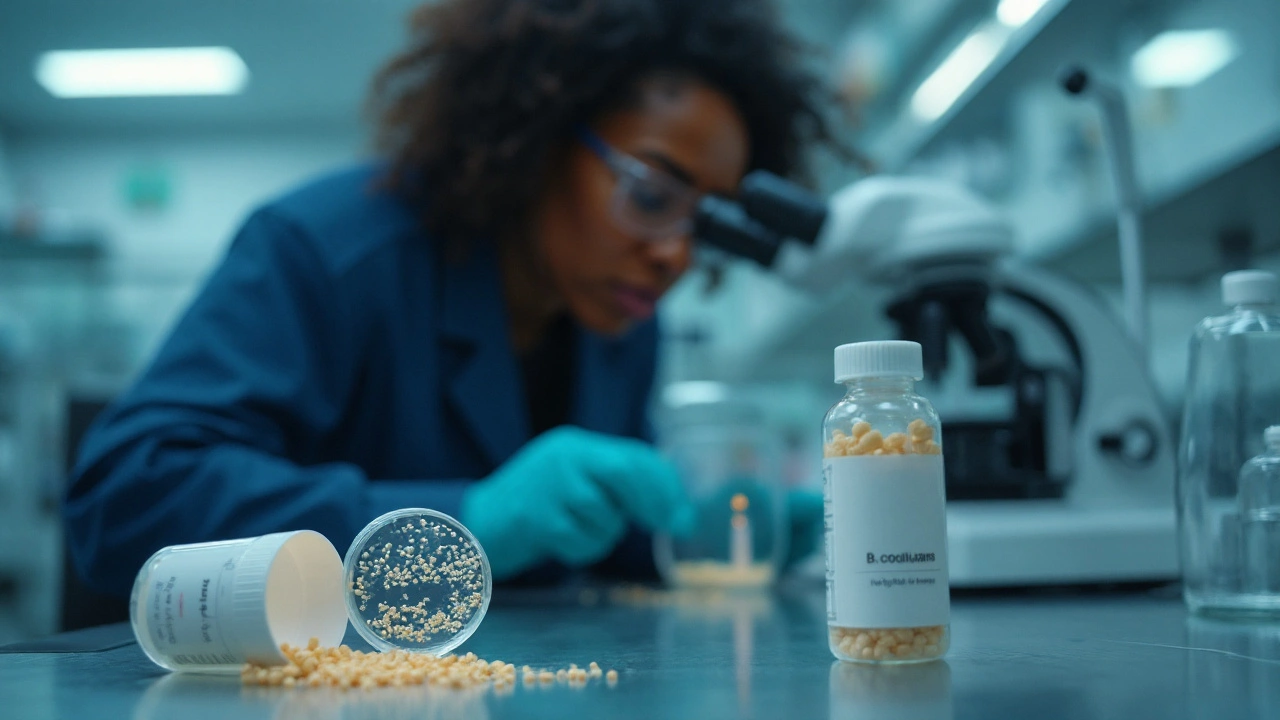Bacillus coagulans: What It Is and Why It Matters
If you’ve been scrolling through probiotic labels, you’ve probably seen the name Bacillus coagulans. It’s a spore‑forming bacteria that can survive the harsh environment of your stomach and reach the intestines alive. That’s why it’s often marketed as a powerful gut‑support supplement. Unlike many lactobacilli that die before they get to work, the spores of B. coagulans protect the cells until they hit the right conditions, so you actually get the benefit you pay for.
Research shows this strain can help balance the gut microbiome, reduce occasional constipation, and even ease mild digestive discomfort. It produces lactic acid, which helps lower the pH in the colon and creates a less friendly environment for harmful bacteria. In short, it’s a tiny but hardy helper that keeps your gut running smoothly.
What Is Bacillus coagulans?
B. coagulans is a naturally occurring bacterium found in soil, fermented foods, and even the human gut. When taken as a supplement, it’s usually in a spore form that can withstand heat and acid. This makes it a good choice for people who want a probiotic that stays stable in capsules, powders, or even baked goods.
One of the key advantages is its ability to produce lactate without creating gas, so it’s less likely to cause bloating compared to some other probiotics. Studies in healthy volunteers report improved stool frequency and softer stools after a few weeks of daily use. Athletes also like it because it can help with nutrient absorption and recovery after intense training.
How to Use It Safely
Start with a low dose – typically 1‑2 billion CFUs (colony‑forming units) once a day. If you tolerate it well, you can increase to 5‑10 billion CFUs, which is the range most clinical trials use. Take the supplement with a meal or shortly after eating; the food helps protect the spores as they pass through the stomach.
People with compromised immune systems or serious illnesses should talk to a doctor before adding any probiotic, including B. coagulans. For most healthy adults, side effects are mild and may include a temporary increase in gas or a change in bowel habits, which usually settles within a few days.
Store your product in a cool, dry place. Some brands advertise room‑temperature stability, but keeping it away from direct sunlight extends shelf life. Check the expiration date and make sure the label lists the exact strain (e.g., MTCC 5856) to guarantee you’re getting the researched version.
Pairing B. coagulans with a balanced diet rich in fiber enhances its effectiveness. Fiber feeds the good bacteria and helps them colonize better. Think whole grains, fruits, vegetables, and legumes – they’re the perfect sidekick for any probiotic plan.
In summary, Bacillus coagulans is a resilient probiotic that can improve gut health, support regularity, and be a useful addition to an active lifestyle. Start low, monitor how you feel, and keep the strain’s storage tips in mind for the best results. If you have lingering digestive issues, a quick chat with a healthcare professional can help you decide whether B. coagulans fits into your routine.






